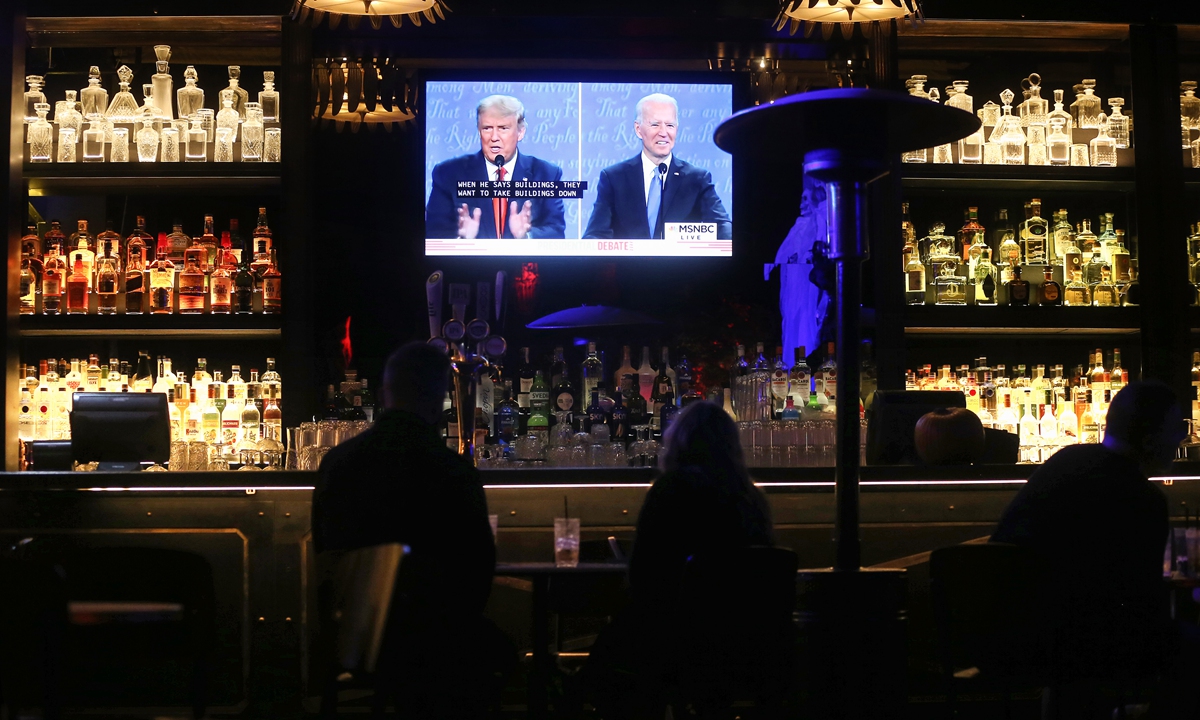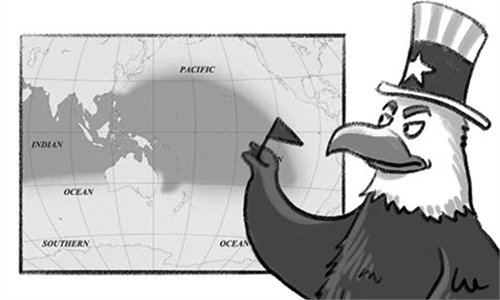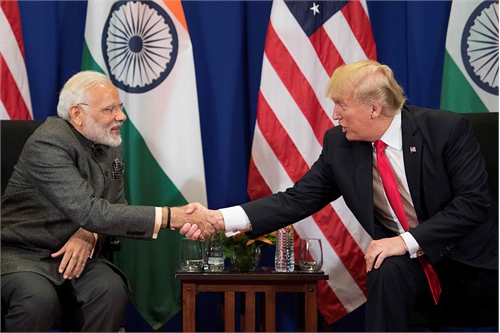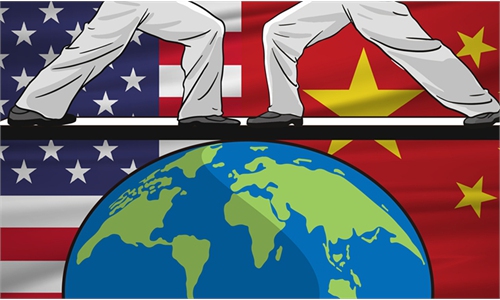
Photo: AFP
The declassification of the Trump administration's strategy in the Indo-Pacific region shows it intends to pressure Joe Biden to inherit its hawkish policy toward China, said Chinese observers, urging the upcoming US government, when dealing with issues in the region, not to fall into Trump's trap.
In an unusual move, the US government declassified on Tuesday one of its most sensitive national security documents - the 2018 strategic framework for the Indo-Pacific - which reveals the Trump administration's plan of an imperative to strengthen India as a counterbalance to China, and its intent to defend the "first island chain" nations and regions, including the island of Taiwan.
The document, written in early 2018, was not due for public release until 2043.
The early declassification comes amid a transition of power in the US, sending a clear signal that the Trump administration hopes its Indo-Pacific policies are inherited by Biden, Zhang Tengjun, an assistant research fellow at the China Institute of International Studies, told the Global Times on Wednesday.
He noted that even if Biden isn't likely to deviate from the current US policy in the Indo-Pacific region, given the declassification, he will be subject to pressure from the US government and maybe some of its allies to offer an explanation when he seeks any change in US policy in the future.
Yet observers noted that it is unrealistic for the US to tie Japan, Australia and India to its own warships in the Indo-Pacific strategy in the long run.
Australia has stood at the forefront of the US' Indo-Pacific Strategy, Yu Lei, chief research fellow at the research center for Pacific island countries at Liaocheng University, said, but noted that Japan and India have different views on the US strategy that emphasizes too much on geopolitical and military confrontation, and that the two countries don't want to mix the free and open Indo-Pacific vision with a strategy that is aimed at containing China.
Zhao Lijian, spokesperson of the Chinese Foreign Ministry, said at a Wednesday briefing that the pre-declassified document exposed the US Cold War mentality and strong military antagonism, which go against regional cooperation and win-win spirit.
"The US is keen on forming cliques… taking shameful tactics such as sowing discord to de-stabilize regional stability and stir trouble," said Zhao, noting that regional countries are aware and vigilant about the US motive and won't become a US tool to maintain its hegemony.
As for the Taiwan question, Zhao said the paper breaks the US' commitment to China.
"We urge the US to fully recognize the sensitivity of the Taiwan question, strictly abide by the one-China policy and three joint communiqués between China and the US…avoid sending wrong signals to Taiwan secessionists; and stop going further on the wrong and dangerous road which would severely endanger the stability of cross-Straits relations as well as China-US ties," said Zhao.
He also vowed that China has the determination, confidence and ability to deter any foreign inference and Taiwan secessionists' intention of separating the island from China.





